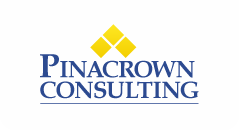‘Profit extraction’ is a pretty clinical phrase to describe one of the most exciting aspects of being your own boss: paying yourself for all the hard work you’ve done to build your company.
For sole traders, the process is fairly straightforward – any money the business makes, minus any expenses, income tax and National Insurance contributions (NICs) you owe, goes into your pocket.
But if you’re the director of a limited company, you have a few different options when it comes to taking money out of the incorporation, some of which are more tax-efficient.
Getting the right balance of salary, dividends and pension contributions could shave thousands of pounds off your tax bills each year.
Salary
Taking out profits from your limited company in the form of a salary is one of the more obvious ways to pay yourself, so let’s start there.
However, you should always keep your salary low and within your annual personal allowance for tax purposes, which is £12,570 for the 2022/23 tax year.
In fact, directors are classed as employees and pay National Insurance on annual income from salary and bonuses over £9,568. Therefore, we recommend keeping your salary and bonuses below that amount.
That way, you will not have to pay employers’ NIC at 15.05% but will still accrue qualifying years towards state benefits, such as the state pension, as long as you pay yourself more than £6,396 a year.
A low salary can be deducted from your company’s gross profit before your corporation tax bill is calculated. The lower your company profits, the less corporation tax you’ll have to pay.
Just know other sources of money, such as savings, rent and a side job may also count as income, so make sure you factor these into your income tax calculations if you handle those yourself.
Dividends
You’ll need another profit extraction method to fund your lifestyle, which is where dividends come in.
Dividends are sums of money paid by a company to its shareholders out of its annual profits.
They are an advantageous profit extraction method because the dividend tax rates are lower than their income tax counterparts, so you’ll save money if you use them to top up your payment.
As of the 2022/23 tax year, dividends are taxed in the following manner:
- basic rate (up to £37,700): 8.75%
- higher rate (from £37,700 to £150,000): 33.75%
- additional rate (over £150,000) 39.35%.
Everyone can get their first £2,000 in dividends completely tax-free.
However, you can only pay out dividends if your company is making a profit. If you’re facing a period of loss, you can still take out a salary, but prepare for a higher tax bill.
Pension contributions
You should also regularly contribute to a pension, as you can treat them as a business expense that you can offset against your corporation tax bill.
Although there is a £40,000 annual pension limit, there is no tax charge when you make a contribution up to this yearly limit. You might be able to use any unused annual pension allowance from the previous three tax years, which allows you to put more into your pension.
When the time comes to start accessing your pension, your retirement income will be liable for income tax at your marginal rate.
You can also make personal pension contributions through your company.
Talk to us for more advice on extracting profits from your business.
